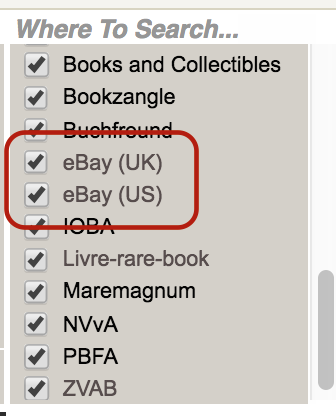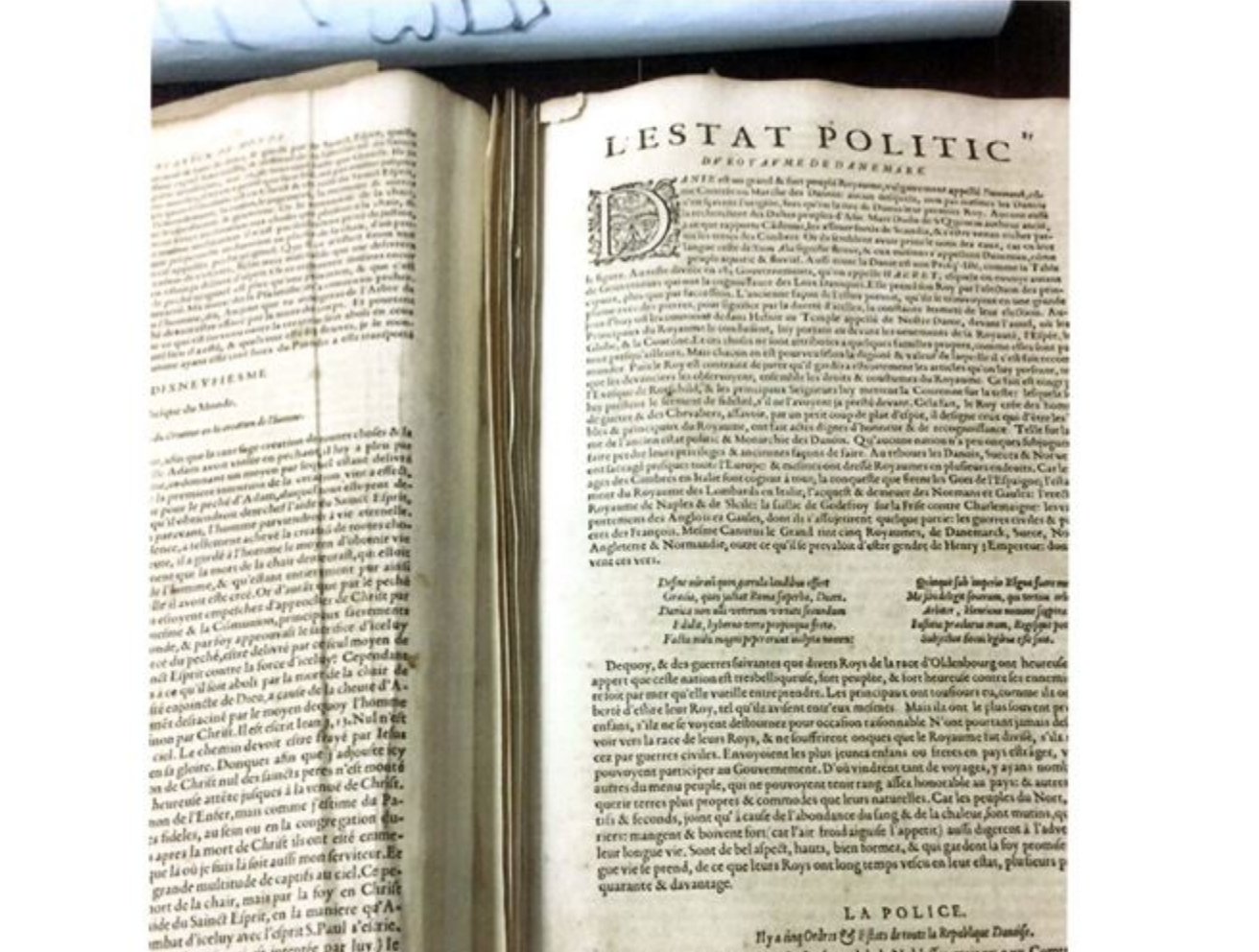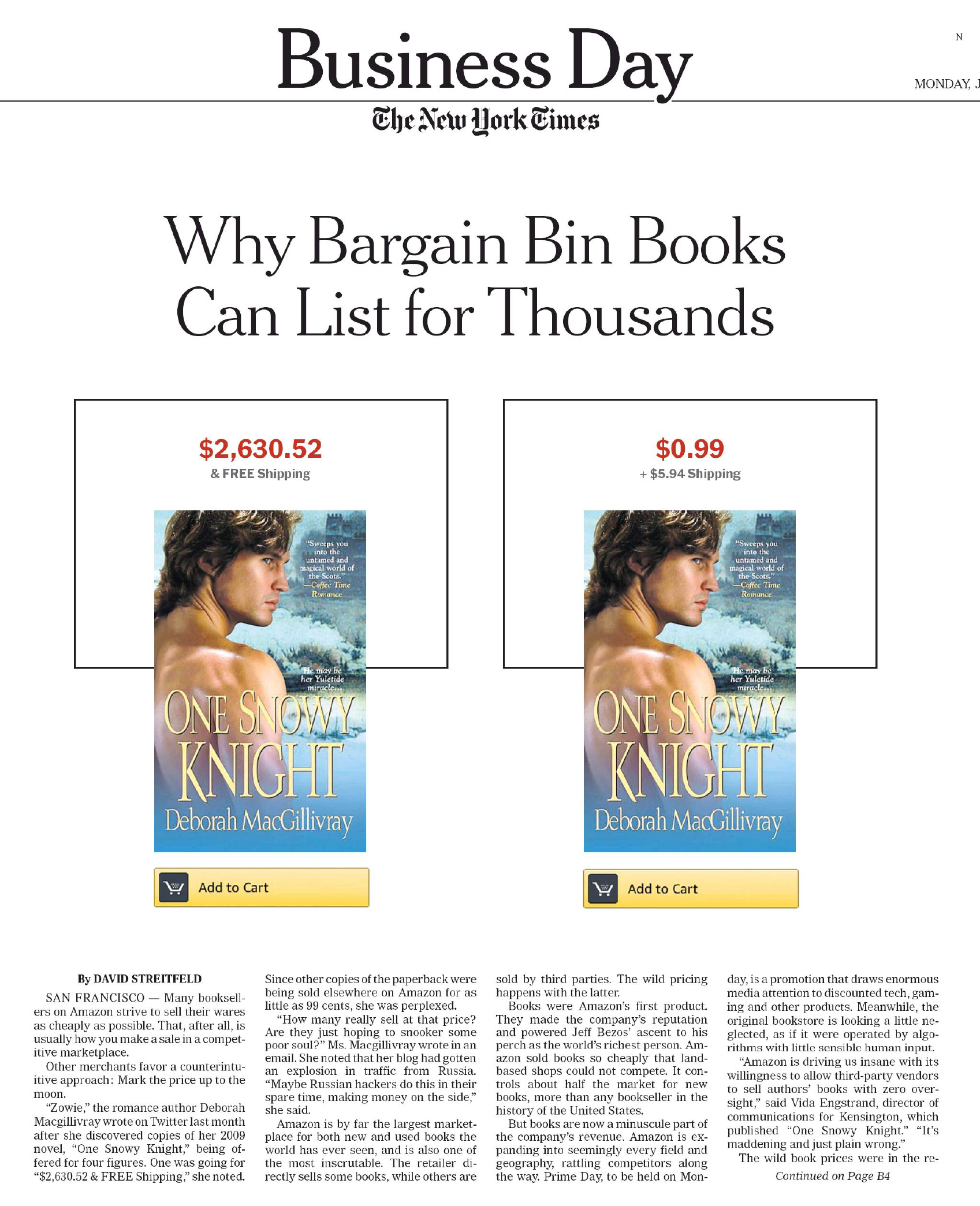 We are pleased to announce that viaLibri now includes books from eBay as part of its search results. If you look in the “Where to Search” panel in the upper right hand corner of our home page search form you will see two check boxes for eBay.com and eBay.co.uk. When these have been ticked the old, rare and out-of-print “Buy It Now” book listings from those two sites will be added to all the items from all the other sites we already search. This means that over 30 million more items have now become searchable.
We are pleased to announce that viaLibri now includes books from eBay as part of its search results. If you look in the “Where to Search” panel in the upper right hand corner of our home page search form you will see two check boxes for eBay.com and eBay.co.uk. When these have been ticked the old, rare and out-of-print “Buy It Now” book listings from those two sites will be added to all the items from all the other sites we already search. This means that over 30 million more items have now become searchable.
And there are more to come. We expect to start searching auctions on eBay in the near future and plan to expand to other international eBay sites as well.
But beyond just adding numbers to our search results we are also creating a better way to search eBay for books. You can now use viaLibri to search for books on eBay in ways that are not possible on any other site, including eBay itself. Once you have given us a try we are confident you will not want to go back to whatever you did before. Here are some of the things you will now be able to do, for the first time, when searching for books on eBay:
Authors: What could be more essential to the identity of a book than the name of its author? Nothing that we can think of. When a book is listed on eBay the author’s name is just another undifferentiated tidbit of information. Searching specifically by author is not possible. To overcome this limitation we have developed techniques to extract the author’s name from most eBay book descriptions . This means, for example, that if you wanted to search for books written by Martin Luther you could have results that were not also cluttered with books about him. You can also combine this with our exclusion feature to make sure that your search for books by Martin Luther did not also fill your results with books by or about Martin Luther King. This is something you cannot do when searching on eBay itself.
Publication Dates: The year in which a book was published is, of course, an essential element in determining its interest and value. One of the most useful tools that viaLibri offers to collectors is the ability for search for books within a specific date range and to sort results by date. If you are only interested in books on a subject before a certain date we can filter your results to eliminate the things you don’t want. This is something else you can’t currently do when searching on eBay directly.
Fuller descriptions for search results: Native search results on eBay show only a title, price and photo for the books that are returned. To see any details you need to click through to another page. Our results will in most cases show, in the results list, the notes or condition information provided by the seller. In this way, much needless clicking is avoided.
Bookseller easily identified: In addition to details about the book, our results list will also give the name of the seller who is offering that item, this helping to identify favoured sellers and eliminating what should be an unnecessary click.
First Editions: We have built our own eBay tool to find books which have been identified by their sellers as first editions. After testing the results we have found that we usually return significantly more eBay firsts when we search on viaLibri than when we search on eBay itself.
Signed copies: The same thing applies when we search for signed copies. In fact, with signed books we do even better than with first editions. In one case, for example, we turned up 3 signed copies of books by a particular author, while eBay had none, and did not even get an option for trying. If your collecting interests are focused on signed copies we should be able to help you find more of them.
Clipboard: The viaLibri clipboard is available for saving details of items you have found on eBay, along with items from any of the other sites we search. Even after the book is sold or withdrawn, the information about it will be stored indefinitely for future reference, or until you decide to delete it.
Exclusions: When searching on viaLibri you can specify words or phrases that help identify items that you want to exclude from your search results. eBay lets you use a single word in the title to select items for exclusion; viaLibri lets you use multiple words or phrases, and the exclusions can be applied specifically to the author, title or keyword fields. For example, this would be useful if you were searching for books about Charles Darwin but did not want books written by him. This can be easily done with viaLibri, but is impossible when searching directly on the eBay site itself.
No ISBN: A checkbox on the viaLibri search form lets you filter out books which have ISBN numbers. This is useful for identifying and excluding modern reprints of early editions when it is only the early editions that are of interest.
Translation: When an item is described in a foreign language you can use the viaLibri translation feature to translate the text into the language of your choice.
If you are only interested in looking for books on eBay then we feel quite confident that viaLibri is the best way for you to do it. All you need to do is go to the “Where to Search” panel and uncheck all the options except “eBay (UK)” and “eBay (US).” But why would you want to do that? We have over two dozen other boxes you can check that will lead you to books from many thousands of additional booksellers from around the world. eBay is an excellent place to look for books, but if it is the only place you have been looking so far, then I think you are in for a pleasant discovery.

If you are, on the other hand, a long time hard-core eBay buyer then I think you will also be in for a pleasant surprise. Give it a try and see for yourself if we don’t make your hunt for books on eBay both easier and more productive.


 We are pleased to announce that viaLibri now includes books from eBay as part of its search results. If you look in the “Where to Search” panel in the upper right hand corner of our home page search form you will see two check boxes for eBay.com and eBay.co.uk. When these have been ticked the old, rare and out-of-print “Buy It Now” book listings from those two sites will be added to all the items from all the other sites we already search. This means that over 30 million more items have now become searchable.
We are pleased to announce that viaLibri now includes books from eBay as part of its search results. If you look in the “Where to Search” panel in the upper right hand corner of our home page search form you will see two check boxes for eBay.com and eBay.co.uk. When these have been ticked the old, rare and out-of-print “Buy It Now” book listings from those two sites will be added to all the items from all the other sites we already search. This means that over 30 million more items have now become searchable.